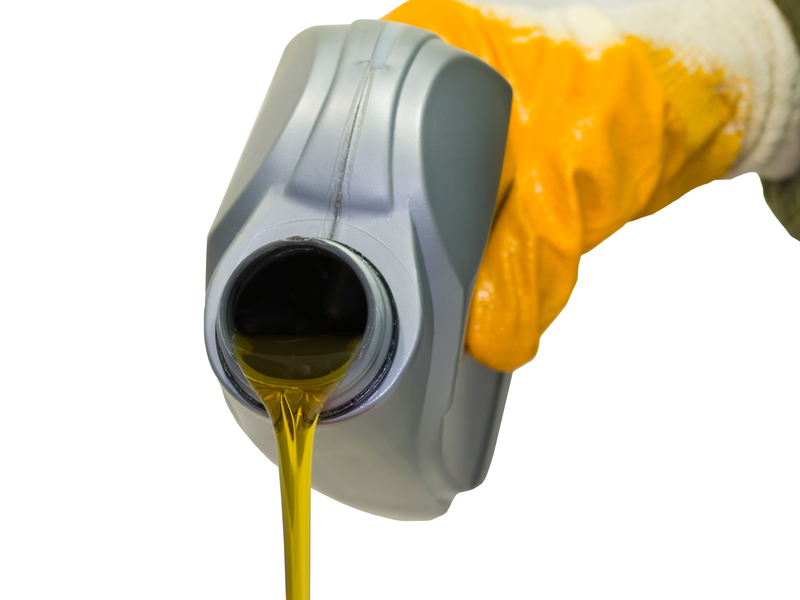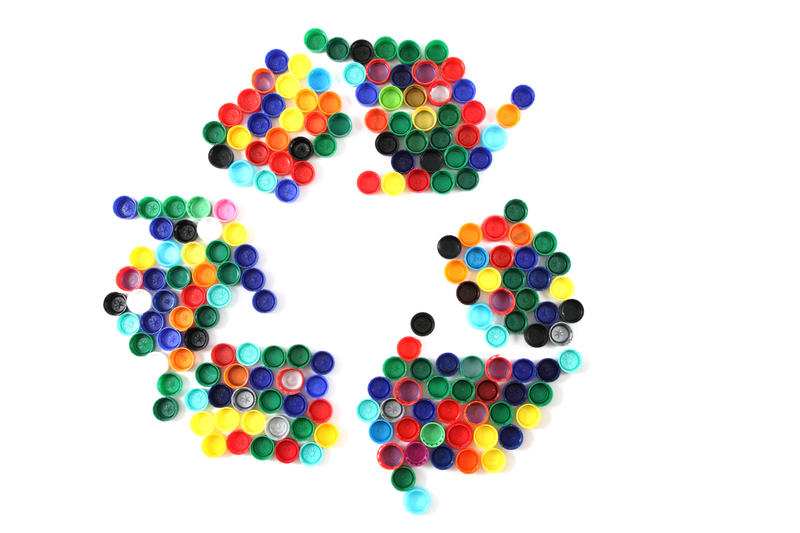Contribute to Sustainability by Recycling Your Pots and Pans
Have you ever wondered what to do with your old or damaged cookware? Kitchen decluttering often leads to a pile of unusable pots and pans destined for the trash. However, there's a more sustainable path--recycling your pots and pans. Not only does this practice minimize environmental impact but also supports the broader movement toward sustainable living. In this comprehensive article, we will delve into the importance of recycling cookware, how you can contribute to a greener planet, and creative alternatives for reusing your old kitchenware.
Why Recycling Your Pots and Pans Matters for Sustainability
Every step toward sustainability makes a difference. Our homes are full of products composed of valuable materials that, if disposed of improperly, can harm the earth. Pots and pans recycling isn't just about clearing out clutter--it's a deliberate action to help reduce resource consumption, cut down landfill waste, and conserve energy.
The Environmental Impact of Discarded Cookware
- Landfill Overflow: When pots and pans end up in the garbage, they contribute to the mounting waste in landfills. Metal doesn't decompose quickly, taking hundreds of years to break down, potentially contaminating soil and water.
- Resource Depletion: Mining new metals for cookware is resource-intensive, leading to habitat destruction, pollution, and greenhouse gas emissions.
- Wasted Energy: Manufacturing new cookware from raw materials consumes far more energy compared to recycling existing metals.
Recycling your pots and pans ensures that these valuable resources are put back into the circular economy, reducing your environmental footprint and supporting a sustainable future.

What Types of Cookware Can Be Recycled?
The vast majority of pots and pans are made from recyclable metals, though certain coatings or handles may need to be removed. Here's a breakdown of the most common types:
- Stainless Steel Pots and Pans: Highly recyclable, stainless steel is one of the most commonly recycled metals worldwide.
- Aluminum Cookware: Aluminum pots and pans can often be recycled, provided any non-metal parts are removed.
- Copper Cookware: Copper is valuable and widely accepted at metal recycling centers.
- Cast Iron Skillets: These heavyweights are a favorite for recycling due to their pure iron content.
- Non-Stick and Coated Pans: Special care must be taken with Teflon, ceramic, or anodized coatings, but in many cases, specialized facilities can handle them.
Important: Remove plastic handles, glass lids, or non-metal portions before recycling, as they may not be accepted at standard metal recycling facilities.
Items Typically Not Recyclable
- Ceramic cookware or glass-based bakeware (unless a specialist facility is available).
- Pots with significant wooden parts that are difficult to separate.
- Pots and pans with excessive food residue or burnt material (clean before recycling).
How to Recycle Pots and Pans Responsibly
Finding the right destination for your old cookware involves a few simple steps:
Check Local Recycling Guidelines
- Contact Municipal Recycling Centers: Many municipal waste management agencies accept metal cookware in scrap metal bins, while others have designated drop-off programs.
- Review Online Resources: Websites such as Earth911 provide search tools to find local recycling options for metal kitchenware.
Pro Tip: Always verify if your pan's coating or handles need to be removed before dropping off.
Specialty Scrap Metal Yards
- Higher Acceptance Rates: Scrap metal dealers typically accept a wide range of metal items--including pots, pans, and lids--even if other facilities do not.
- Monetary Incentives: Some yards pay small fees for metals like copper and iron.
- Preparation: Remove as much non-metal as possible and, if feasible, separate metals by type for easier processing.
Retailer Take-Back Programs
- Many major retailers, especially those specializing in cookware and kitchen appliances, offer take-back or recycling programs for old pots and pans.
- Check with brands like Williams Sonoma, IKEA, or regional eco-friendly retailers about such initiatives.
Donation: Give Pots and Pans a Second Life
If your old cookware is still functional, consider donating before recycling.
- Thrift Stores: Goodwill, Salvation Army, and other charity shops may accept safe and clean used cookware.
- Shelters and Soup Kitchens: These organizations often need durable pots and pans for community meals.
- Online Marketplaces: Websites like Freecycle or Craigslist help pass on usable cookware to those in need.
Remember: Even if it's not suitable for your kitchen, your pot or pan may be invaluable to someone else.
Creative Ways to Repurpose Old Cookware
Recycling isn't the only path to sustainability. Upcycling and reusing pots and pans can reduce waste and add a touch of creativity to your home or garden.
DIY Garden Planters
- Turn old pots and pans into unique plant containers. Drill drainage holes, fill with soil, and plant herbs, flowers, or succulents.
- Hang skillets on fences or balconies for quirky wall gardens.
Household Organization
- Use pots as catches for loose coins, office supplies, or keys in entryways.
- Repurpose lids as trays or trivets for candles and decorative centers.
Artistic Home Decor
- Transform copper pans into striking wall art. Their reflective surfaces add warmth and interest to any room.
- Attach multiple pans on a kitchen wall for an upcycled gallery display.
Playful Options for Kids
- Old pans make for excellent "drums" in children's homemade bands.
- Mini pots can serve as imaginative props in play kitchens.
The Benefits of Recycling Pots and Pans for the Environment
Every recycled pot and pan brings measurable environmental benefits:
- Reduced Landfill Waste: By recycling metal cookware, you help eliminate bulky, non-biodegradable items from overburdened landfills.
- Resource Conservation: Recycling metals uses less energy and water compared to manufacturing new products, preserving finite resources.
- Lowered Greenhouse Gas Emissions: Recycling processes release fewer emissions, contributing to climate change mitigation.
- Supports Circular Economy: By reintroducing materials into the production cycle, you're building a waste-reducing economic model that values longevity and reuse.
Recycling your cookware is a simple action with far-reaching impact.
Common Myths About Pots and Pans Recycling
Let's debunk some misconceptions that prevent people from making the sustainable choice:
- Myth: "Non-stick or coated pans can't be recycled."
Fact: While extra steps may be needed to remove or handle coatings, many facilities can process non-stick or ceramic cookware. Always check with your local recycler. - Myth: "It's not worth it because metal pans are just a small part of the waste stream."
Fact: Every item counts toward reducing landfill waste, and metals are among the most valuable (and recyclable) materials in the waste stream. - Myth: "You have to drive long distances to recycle pots and pans."
Fact: Most communities have accessible recycling or scrap metal drop-off points. Use online resources to locate the closest site.
How to Make Your Kitchen More Sustainable
Recycling is only one part of building a greener kitchen. Here are a few additional steps for long-term sustainability:
- Choose Durable Cookware: Invest in high-quality pots and pans made from materials like cast iron or stainless steel, which last longer and are easier to recycle.
- Avoid Disposable Cookware: Single-use trays and pans generate unnecessary waste.
- Buy Pre-Owned: Consider picking up gently used items from thrift stores or secondhand markets.
- Practice Proper Cookware Maintenance: Regular cleaning and care prolongs the life of your kitchenware.
- Reduce Food Waste: Plan meals better, compost scraps, and use leftovers creatively.
Sustainable practices in the kitchen have a ripple effect, influencing other aspects of your lifestyle and inspiring those around you.

The Global Effort: Why Your Individual Action Matters
The journey toward sustainability begins with every small decision. Recycling your old pots and pans is a powerful act with global repercussions. When millions of households choose to recycle, the cumulative reduction in waste, resource consumption, and pollution is incredible.
Consider this:
- Recycling a single ton of steel can save up to 2,500 pounds of iron ore, 1,400 pounds of coal, and 120 pounds of limestone.
- The energy savings from recycling metals instead of producing them from scratch are up to 74% for steel and 95% for aluminum.
- Reused or recycled materials mean less mining, cleaner air, and a healthier ecosystem for future generations.
When you recycle pots and pans, you're not just decluttering your home--you're taking a stand for the planet.
Conclusion: Take the Next Step in Kitchen Sustainability
Inevitably, our pots and pans wear out, but their lifecycle doesn't have to end in a landfill. By prioritizing the recycling of cookware and exploring creative alternatives for reuse, you're embracing sustainability with tangible results. Make use of local recycling programs, donate when possible, and inspire your community by choosing environmentally responsible options.
Every pan recycled is a victory for sustainability. Together, we can build a greener, cleaner, and healthier future--one pot and pan at a time.